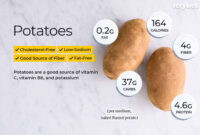Rice is one of the most widely consumed staple foods in the world, especially in Asian countries. It is a versatile grain that can be eaten on its own or used as an ingredient in various dishes. But have you ever wondered what nutrition rice has and how it contributes to our overall health and well-being? In this article, we will explore the nutritional benefits of rice and why it should be included in a balanced diet.
Carbohydrates
Rice is primarily made up of carbohydrates, which are the body’s main source of energy. It contains both simple and complex carbohydrates. Simple carbohydrates, such as glucose and sucrose, are quickly digested and provide immediate energy. Complex carbohydrates, on the other hand, take longer to break down and provide sustained energy.
When consumed, rice releases glucose into the bloodstream, which fuels the brain and muscles. This makes rice an excellent choice for athletes and individuals with high energy requirements. It also helps regulate blood sugar levels, making it a suitable option for people with diabetes.
Fiber
Although rice is primarily a source of carbohydrates, it also contains a small amount of fiber. Fiber is essential for digestive health as it adds bulk to the stool, promotes regular bowel movements, and prevents constipation.

While white rice has had the bran and germ removed, which also removes most of the fiber content, brown rice retains its bran and germ, making it a more fiber-rich option. Including brown rice in your diet can help improve digestion and reduce the risk of gastrointestinal disorders.
Protein
Rice is a good source of plant-based protein, especially for vegetarians and vegans. Although it is not a complete protein, meaning it lacks some essential amino acids, combining rice with other protein sources such as legumes, tofu, or dairy products can provide a complete amino acid profile.
Protein is crucial for tissue repair and growth, enzyme production, and hormone synthesis. Including rice in your diet can help meet your daily protein needs and support overall health and muscle development.
Vitamins and Minerals
Rice contains a variety of vitamins and minerals that are essential for maintaining good health. It is particularly rich in B vitamins, including thiamine, niacin, and vitamin B6. These vitamins play a vital role in energy production, nerve function, and red blood cell formation.
In terms of minerals, rice is a good source of magnesium, phosphorus, and selenium. Magnesium is involved in over 300 biochemical reactions in the body and is essential for muscle function and bone health. Phosphorus is necessary for bone formation and maintenance, while selenium acts as an antioxidant and supports immune function.
Conclusion
Rice is a nutritious grain that provides energy, fiber, protein, and essential vitamins and minerals. Incorporating rice into your diet can contribute to overall health and well-being. Whether you prefer white rice or opt for the more nutrient-dense brown rice, both varieties offer unique nutritional benefits. So, next time you enjoy a delicious rice-based dish, remember the nutrition it provides and how it supports your body’s needs.


